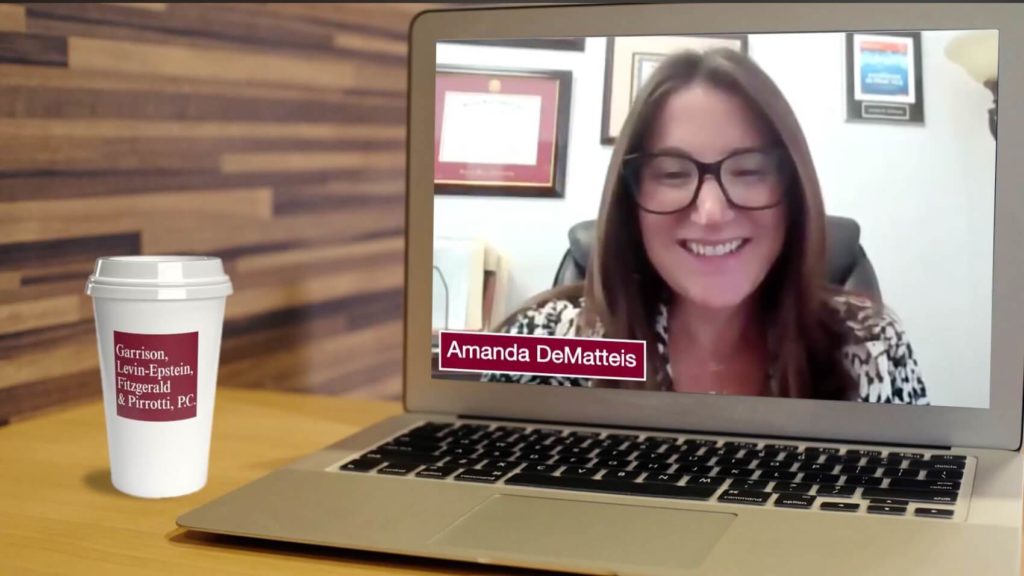Nov 2 2022
Amanda DeMatteis: Hi, Josh!
Josh Goodbaum: Hi, Amanda! What do you want to talk about today?
DeMatteis: Well, I thought we would talk about pregnancy. So, I am very close to the end of my pregnancy – I’m due in a few weeks – and I was sitting in my OB’s office over this past week, in the bathroom – where else would I be? – and there’s a number of postings on the bathroom walls about what rights pregnant women have available to them in the workplace. And I’m reading all of these bulletins and I’m thinking, “Jeez, this is confusing, and I’m an employment lawyer!” So, I thought it might be useful to break some of this down for other Connecticut employees who are pregnant or planning to become pregnant and talk about their rights.
Goodbaum: Great! So, what are the laws in Connecticut that protect pregnant women?
DeMatteis: Okay, so there’s a couple of them. We have the Connecticut Fair Employment Practices Act (CFEPA); we have the CT Family and Medical Leave Act (CT FMLA); and then we have a really new one, which is the CT Paid Leave Act (CTPL) – which, for the first time in our history, affords employees with qualifying circumstances some pay if they need to take FMLA under our Connecticut law.
So, let’s chat about those, and let’s take them one at a time.
The Connecticut Fair Employment Practices Act prohibits discrimination and retaliation on the basis of a number of different protected classes, pregnancy being one of them. So, your employer cannot discriminate or retaliate against you on the basis of your pregnancy.
In addition to that, though, you can request a reasonable accommodation as a result of your pregnancy. But what does that look like?
It’s very different for all different Connecticut employees, right? Maybe your job requires you to stand up for long periods of time as a cashier, and you need to sit down; so maybe you can request that reasonable accommodation from your employer. Maybe you need more frequent bathroom breaks, which of course we all need when we find ourselves being pregnant in the workplace; maybe that’s a reasonable accommodation. Maybe your job requires a lot of lifting and because of your pregnancy, it’s just not safe to lift as much as you could prior to becoming pregnant.
It varies, right? It’s very fact specific, depending upon what it is that you do, and you have to work with your doctor and your employer to find the right reasonable accommodation for you. But super important to know that that protection is out there. So, if you need it, talk to your employer, talk to your medical provider, and get yourself whatever it is that you need to be the most comfortable as you’re going through a pregnancy at work.
Another accommodation, which of course is important, is a private space for lactation after the baby is born so that you can make sure you have the appropriate amount of privacy to do whatever you need to do to care for your baby.
The Connecticut Fair Employment Practices Act also entitles you to a reasonable leave on the basis of your pregnancy. So what does that mean? It could be six weeks, it could be eight weeks, but hey, we know many women who suffer some type of complication or disability that stems from their pregnancy and need more time. So, it again is very different dependent on your own situation.
That leads us and segues us perfectly into the CT FMLA, which entitles eligible employees to 12 weeks of leave in any calendar year. Traditionally, that’s been unpaid leave, but now, effective January 2022, we have some paid leave in Connecticut.
I’ll tell you just as a quick aside, Connecticut is one of the best states to be pregnant in in the country because these laws that protect pregnant women in the workplace are not universal – they are not in every other state. So, we need to consider ourselves quite lucky to be here and be dealing with this phase in our life.
So, Connecticut Paid Leave is a separate application process. What you’ll need to do through your employer is, of course, request FMLA leave, and then you’ll have to go on to CTPaidLeave.org and submit a claim in order to see if you qualify for payment during that leave time. There are maximums – the maximums are going to be changing over time. Right now, that’s $560 a week. Effective June 1, 2023, that’s going to go up to $600 a week.
But the timelines are really tight. You need to file a new claim within 30 days of your need for leave. After you file the claim, there’s an employer verification that needs to be done that you are really responsible for; there’s supporting documentation that you need to submit; and all of that happens quickly.
So, the best thing for you to do in any employment situation is to know your rights, to be nice and organized, and to reach out to an employment lawyer if you need anything, okay? So, remember – Connecticut Fair Employment Practices Act, CT FMLA, CT Paid Leave. You can go to that website, CTPaidLeave.org – great website, there’s a ton of information for you. And if you need anything at all, call an employment lawyer.
Best of luck as you navigate both pregnancy and handling that in the workplace. I hope that this was helpful.
Goodbaum: Thank you so much, Amanda. It was helpful, and thank you all for listening. Take care!
DeMatteis: Take care!
Posted by Garrison, Levin-Epstein, Fitzgerald & Pirrotti, P.C. in Commentary
Tagged Amanda DeMatteis, Joshua Goodbaum









